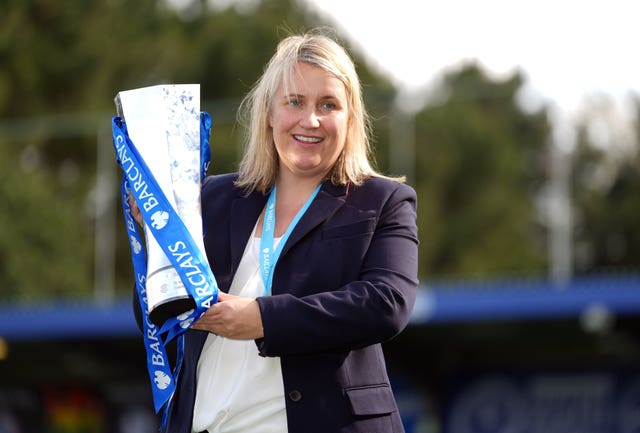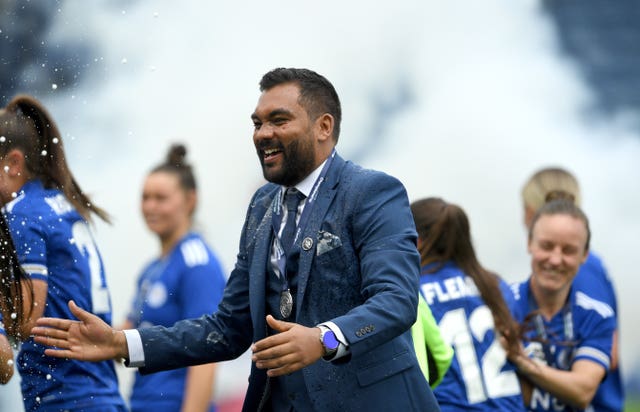After the challenges of the last 18 months, the Women’s Super League is about to enter an exciting new era with the start of the 2021-22 season.
Clubs who have been dealing with the various impacts of the coronavirus pandemic are preparing for a campaign in which a new broadcast deal for the WSL described as “game-changing” by the Football Association kicks in.
The three-year deal, understood to be worth around £7million to £8m per season, will see matches shown on Sky Sports and BBC One and Two and clubs receiving a proportion of the revenue.
🎉 HUGE NEWS 🎉#BarclaysFAWSL games will be broadcast on @SkySports and @BBCSport from next season! The landmark partnership will see more access to live women’s football than EVER before. 👀 📺 — Barclays FA Women's Super League (@BarclaysFAWSL) March 22, 2021
With that boost in exposure and finance, supporters set to return to stadiums and the England-hosted Euros less than a year away, the current sense of optimism with regard to the growth of women’s football in the country is considerable.
Chelsea made a significant contribution to that feeling with their run to the Women’s Champions League final last season – the first time an English club had reached that stage of the competition in 14 years.
The Blues’ 2020-21 also saw them retain the WSL title, and they will be tipped by many this term to claim the trophy for a third time in a row and fifth in total under boss Emma Hayes, who signed a new contract in July.
Hayes’ squad, already featuring the formidable attacking talents of Sam Kerr, Fran Kirby and Pernille Harder, has been strengthened further by the signing of 19-year-old forward Lauren James from Manchester United.

Two points behind Chelsea in runners-up spot last season were Manchester City, the FA Cup holders who under Gareth Taylor are seeking their first league success since 2016.
Jamaica forward Khadija ‘Bunny’ Shaw and Spain midfielder Vicky Losada, a Champions League winner with Barcelona in May, have arrived at City over the summer, with United States trio Sam Mewis, Rose Lavelle and Abby Dahlkemper departing, while 2020 FIFA player of the year Lucy Bronze has undergone knee surgery.
Arsenal, who finished third to claim the final Champions League berth, have a new manager with ex-Rosengard boss Jonas Eidevall having succeeded Joe Montemurro.
And the Swede has emphasised his belief that the Gunners, nine points adrift of Chelsea at the end of 2020-21, can win the league this season. Forwards Nikita Parris and Mana Iwabuchi are among the players who have been brought in to aid that bid.
Excited to join a club with so rich in history. Excited to meet all of you Arsenal fans. Excited to win even more trophies… I am, Excited to be a Gunner. — Nikita Parris (@lilkeets) July 2, 2021
There has also been a change of boss at Manchester United, Casey Stoney stepping down following their fourth-placed finish and former Birmingham manager Marc Skinner replacing her.
United – who have lost two US internationals since last term in Tobin Heath and Christen Press, while incoming personnel has included Norway midfielder Vilde Boe Risa – are looking to gatecrash the top three for the first time.
Willie Kirk’s Everton, fifth last season, appear in good shape having made a raft of summer signings that includes the return to the club of winger Toni Duggan.
The division’s newcomers are Jonathan Morgan’s Leicester, who are set to play the majority of their home games at the King Power Stadium and have added the experience of Abbie McManus to their squad.

Hope Powell’s Brighton, with Danielle Carter and Lee Geum-min among their summer recruits, head into the season aiming to pick up where they left off having finished their 2020-21 campaign by registering six wins in nine matches, including one at Chelsea.
Reading’s summer has seen them gain the experience of Natasha Dowie after losing that of Fara Williams, while Tottenham’s business ahead of their third WSL season has included bringing in three-cap England international Chioma Ubogagu.
West Ham, Aston Villa and Birmingham are hoping to improve on finishes of ninth, 10th and 11th respectively, the latter two sides with new managers at the helm in Carla Ward, who went from the Blues to Villa, and Scott Booth.






